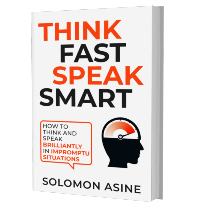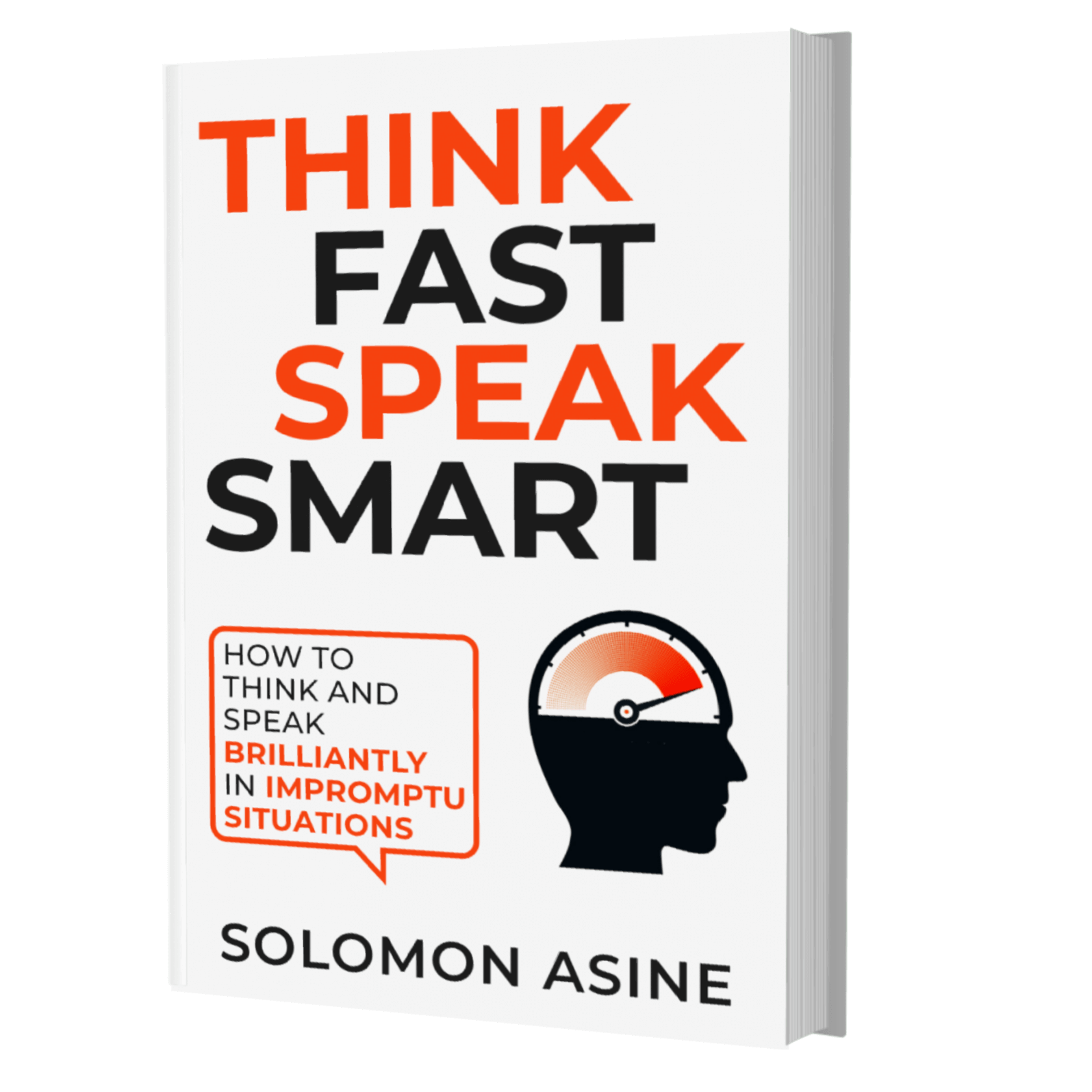Have you ever thought about the value of asking good questions?
In 1943, on a family vacation to Santa Fe, New Mexico, a photographer took a shot of his 3-year-old daughter, Jennifer. The young girl, out of curiosity, asked her father why she couldn’t see the photograph immediately. Back then, it was typical to wait for a photographer to develop the photographic film in a dark room before you see the picture. Fortunately for humanity, the young girl’s question disrupted that norm, and in 1948 the polaroid camera was invented by her father, Edwin Herbert Land.
Questions are powerful! Unfortunately, most of us have relegated the precious art of questioning to a place of insignificance. We fail to understand that the quality of our lives depends on the questions we ask, not just random questions, but meaningful and quality questions.
You will agree that there is a direct relationship between the quality of our lives and the quality of our thought. Likewise, the quality of our thoughts is directly connected with the quality of our questions.
Throughout our lives, we experience the power of asking questions in more ways than one. Here are some reasons to ask more questions.
We Learn by Asking
Sometimes we waste a lot of time and effort trying to figure out a problem, only to ask someone who has been down that path, and the problem is solved in a matter of minutes. The truth is that we learn by asking.
We start learning about the world as children. A child can wear you out by the number of questions they ask. Child psychologist Dr. Sam Wass of the University of East London surveyed 1,500 parents across the United Kingdom. The goal was to learn more about the frequency and nature of questions asked by children.
He found that, on average, children ask about 73 questions a day. They ask questions like, why do people die? Why is water wet? Where does the sky end? What is God? What does “we can’t afford it” mean? Why do I have to go to school? Why can’t I stay up as late as you?
By asking these many questions, children begin to make sense of the world. While the rate of questioning decreases as a child grows older, the art of asking questions remains relevant in learning. Students learn by asking. A new employee learns by asking. Parents learn about their kids by asking. We learn about life through questions.
Re-examine your beliefs
Take a moment and think about some of the beliefs that you have. When and how did you arrive at those beliefs? Here are some common beliefs: “What goes around, comes around.” “I will do better if I was in a different city.” “All men are dogs.”
James Allen was a British philosophical writer and the bestselling author of the book As a Man Thinketh. This is what he said about beliefs:
“The outer conditions of a person’s life will always be found to reflect their inner beliefs.”
One way to reassess your beliefs is through questioning. When you ask the right questions, it forces you to think about how you came to your conclusions. It forces you to go back and look more closely at how you know what they know. It is essential to mention that not all beliefs are wrong. However, there is a need to question some beliefs, especially the ones that limit you.
Stretch Your Creativity
Questions stimulate creativity and idea generation. A good question can create an “aha” moment, leading to innovation and growth. One reason for this is a question forces you to think.
When you take a speech class, they tell you that one of the best ways to start a speech is by asking a question. The reason why you start a speech with a question is that it gets the attention of the audience. When a question is asked, the average human tends to think about the answer to the question.
According to Albert Einstein
“If I had an hour to solve a problem and my life depended on the solution, I would spend the first 55 minutes determining the proper question to ask, for once I know the proper question, I could solve the problem in less than five minutes.”
Ignite Your Conversations
There are times when a conversation ends quicker than you want it to, not because you want it to end but because you can’t figure out how to keep the conversation going. Questions are the engine of deep and productive conversations. Question not only start conversations, but they also reignite it when it runs out of steam.
But mind you, great conversations are balanced. It is all about give and take. Both parties must add value to the conversation. So, it does not help when one party keeps asking questions back-to-back. When this happens, it becomes difficult for both parties to establish a meaningful connection.
Make Better Decisions
Have you ever done sometime silly that you could have avoided if only you asked a question? Sometimes the failure to ask questions can lead to expensive mistakes.
A young man went to the Department of Motor Vehicles (DMV) to update his driver’s license. When he arrived at the location, there was a long line wrapped around the building. Without asking a question, he joined the queue.
After about one hour thirty minutes, he was right in front of the DMV executive. The lady at the desk asked him if he was there to get a license plate. He was shocked. Sadly, the line was for people who had issues relating to their vehicle. The line for driver’s license was on the side of the building. If only he had asked a simple question.
Why Don’t We Ask Questions?
If questions are so powerful, then why do a lot of people fail to ask questions? Why do we lose that natural propensity to ask questions as we grow older? There is no doubt that there is a social pressure to stop asking and start answering. We celebrate kids who provide answers and sometimes reprimand those who ask too many questions.
So as adults, we tend to believe that asking questions makes us look weak, ignorant, or unsure. We like to give the impression that we know what we are doing and are in command of relevant issues. Some people fear that asking questions might bring about uncertainty or show them in a poor light.
On the contrary, asking questions is a sign of strength and intelligence and not a sign of weakness or uncertainty.
It is essential that you recognize how powerful questions are and then strive to utilize that power in expanding your world.
My question to you is, what question are you not asking?



